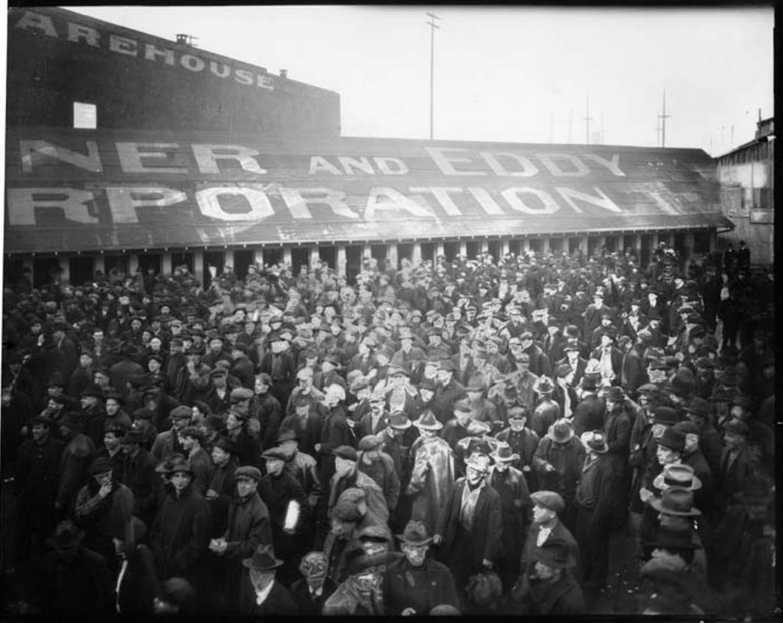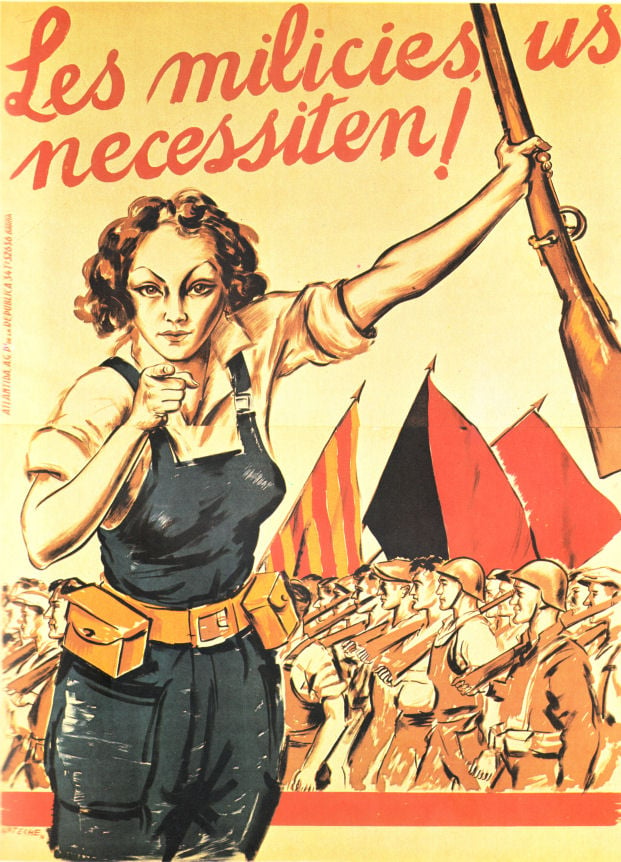- cross-posted to:
- workingclasscalendar
stahmaxffcqankienulh.supabase.co
- cross-posted to:
- workingclasscalendar
Seattle General Strike (1919)
Thu Feb 06, 1919

Image: Seattle General Strike participants leaving the shipyard after going on strike, 1919. [Wikipedia]
On this day in 1919, a general strike involving ~100,000 workers in Seattle began. Workers, vilified as “Bolsheviki”, set up an alternative government that distributed 30,000 meals daily and a police force that did not carry weapons.
Dissatisfied workers in several unions began the strike to gain higher wages after two years of World War I wage controls. Government officials, the press, and much of the public viewed the strike as a radical attempt to subvert American institutions.
During the strike, a cooperative body made up of rank and file workers from all the striking locals was formed, called the General Strike Committee. It acted as a “virtual counter-government for the city”, according to labor historian Jeremy Brecher.
The committee organized to provide essential services for the people of Seattle during the work stoppage. A system of food distribution was also established, which distributed as many as 30,000 meals each day.
Army veterans created an alternative to the police in order to maintain order. A group called the “Labor War Veteran’s Guard” forbade the use of force and did not carry weapons, using “persuasion only”. Major General John F. Morrison, stationed in Seattle, claimed that he had never seen “a city so quiet and orderly.”
On February 7th, Mayor Ole Hanson threatened to use 1,500 police and 1,500 troops to replace striking workers the next day, but the strikers assumed this was an empty threat and were proved correct. A few days later, Hanson stated the “sympathetic strike was called in the exact manner as was the revolution in Petrograd.”
Union leadership, including the American Federation of Labor (AFL), began to exert pressure on the General Strike Committee and individual unions to end the strike, causing some locals to return to work.
The executive committee of the General Strike Committee, pressured by the AFL and international labor organizations, proposed ending the general strike at midnight on February 8th, but their recommendation was voted down by the General Strike Committee.
On February 10th, the General Strike Committee voted to end the general strike the following day, listing the following reasons: “Pressure from international officers of unions, from executive committees of unions, from the ‘leaders’ in the labor movement, even from those very leaders who are still called ‘Bolsheviki’ by the undiscriminating press. And, added to all these, the pressure upon the workers themselves, not of the loss of their own jobs, but of living in a city so tightly closed.”
Immediately following the general strike’s end, the Socialist Party headquarters was raided by police, and thirty-nine IWW members were arrested as “ringleaders of anarchy” despite playing a marginal role in the strike’s development.
- Date: 1919-02-06
- Learn More: en.wikipedia.org, depts.washington.edu.
- Tags: #Labor, #General Strikes, #IWW.
- Source: www.apeoplescalendar.org
deleted by creator


